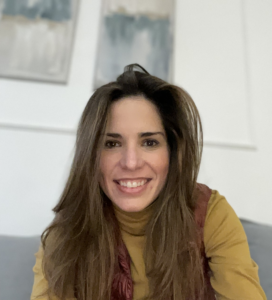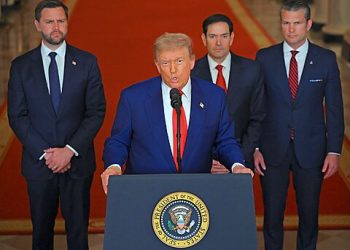Kristina Antonorsi Quintero is a prolific entrepreneur, business owner, and venture capitalist from Caracas, Venezuela.
She studied at Universidad Metropolitana de Caracas, where she earned degrees in Economics and Business Administration. She entered the workforce while completing her post-secondary education by accepting a position at a local electric water heater manufacturer called Industrias Termotronic. During that time, she developed a plan for exporting their products, which would only be enacted years later as the local Venezuelan economy declined.
Kristina eventually moved on to the Canadian frozen yogurt franchise Yogen Früz, where she specialized in expanding the brand’s reach in Venezuela by opening fifteen stores throughout the country. She also worked to develop their in-house manufacturing capabilities, which included the import of certain components, such as flavors and probiotics. This is where her entrepreneurial pursuits began, as she proposed the creation of a new company specializing in the import and resale of these components to other ice cream manufacturers.
This first company found significant success, became a major importer of ice cream components, and registered the first probiotic to be accepted as a food additive in Venezuela. Utilizing the experience and industry contacts she gained through this first endeavor, she co-founded the food distribution company Inversiones Jhose 21 with the goal of promoting local industry and getting local products into major supermarket chains to increase their popularity. She has since expanded her reach into various additional markets, helped to establish numerous companies that now form a holding, and has helped to develop their own brands of liquor, cleaning products, and coffee.
After a few hit-and-miss efforts to explore the US market, Kristina and a former partner provided the seed capital for a company called Videray Technologies Inc, which was sold on to Tek84 Inc in November 2021. She is currently focused on determining the next steps for her group of companies, and seeing what lies ahead for Venezuela and for the various markets she’s involved in.
What do you currently do at your company?
I wear many hats with the various companies I’m involved with, but if I had to sum it up, I would say that my role is basically supervisory. I keep an eye on all of the different departments and make sure that goals are achieved within the right time frame.
What was the inspiration behind your business?
I’ve always been very much in love with the food industry as a whole, and Venezuelan national manufacturers in particular. While I was finishing up school, the Venezuelan economy was very much focused on imported products, to the extent that a lot of the local industry was being tossed aside.
Many people were losing their jobs, because local businesses had no way to compete with imports, and import companies just didn’t need that many employees. It’s mostly just paperwork and customs agents. But when you’ve got a factory, and you’ve got a product that you’re manufacturing locally, that creates a lot of job opportunities. So, that’s what I’ve always tried to promote – local products by local industry.
What defines your way of doing business?
Figuring that out has been a process, to be honest, and I’ve made mistakes along the way. However, I’ve come to appreciate those mistakes, because those are the experiences that gave me the tools I needed to answer that question. If you’ve never made mistakes and never had to learn from those mistakes, I don’t think you have the complete picture needed to really answer that question.
My way of doing business is to be as honest as possible, and as responsible as possible, and I try to be very accurate in whatever I commit to.
What keys to being productive can you share?
Plan ahead. Have daily goals, monthly goals, quarterly goals, and yearly goals, but also don’t lose sight of the ‘right now’, moment-to-moment goals. Make sure that you always have something to work for, and keep track of how well and how quickly you’re achieving those goals. Review your progress, so that if you’re not accomplishing your goals within the timeframe you proposed, you can find out why and fix whatever issues may have arisen.
Tell us one long-term goal in your career.
I think it’s fair to say that I value history and legacy quite a bit. So, it might be a bit silly, but I think a nice long-term career goal for me would be to be able to say that I’m part of a 40 year old company. I’d like to be a part of something that has stood the test of time.
How do you measure success?
Well, the usual measure is profit. That’s important. But stability and sustainability are important measures as well. Profit is important, but profit alone means very little if that profit isn’t stable and if your business model isn’t sustainable.
What advice would you give to others aspiring to succeed in your field?
Put simply, you’ve just got to find a good idea or product and stick with it. Be very consistent with what you’re doing. Success requires sustained effort, so if you’re jumping rapidly from one idea to the next, looking for that one ‘big thing’, you’ll likely never find it.
What are some of your favorite things to do outside of work?
I enjoy traveling a lot with my life partner. We enjoy swimming, and going to the beach a lot. Skiing, too – we just went skiing last week, in fact. But generally, yeah, just spending as much time together as possible despite our busy lives.
How would your colleagues describe you?
Determined, certainly. I don’t think anyone would have reason to doubt that. Maybe even a bit intense from time to time. But I like to think they would also describe me as a good person.
How do you maintain a solid work life balance?
That’s a complicated question to ask an entrepreneur. I don’t let work get in the way of enjoying life, but I’d be lying if I tried to tell you that I enforce any sort of meaningful separation between life and work. I go out to dinner with my life partner, and we end up discussing future plans or project for the companies. It just happens.
Thankfully, she’s an entrepreneur as well, so it doesn’t bother us because it’s something we’re both passionate about. I’m very focused on my work, and she’s very focused on her work, and that works for us. Maybe that’ll have to change when we have kids, but for the moment we’re both happy with things the way they are.
What is one piece of technology that helps you the most in your daily routine?
I’m sure you hear this answer from a lot of entrepreneurs lately, but Zoom has been indispensable. The conference room is getting dusty, as we’re using Zoom for every meeting.
More generally, I’d have to pick modern phones. I’m able to be in contact with most of the members of my team at all times, checking in through WhatsApp, and it doesn’t matter where anyone is.
What is one piece of advice that you have never forgotten?
One thing my mentor made clear to me early on was that, no matter the question, answers and knowledge are always readily available if you’re just willing to read and learn.
When I was developing the export plan for that water heater company, we had to get an international certification for the heaters. It was an international quality guarantee. At the time, we were so used to having to arrange a meeting or hire an expert to bring into a call to get the information we needed. But all of the information we needed was readily available online, and I just had to go look for it. It’s easy to take for granted nowadays, but the barrier to entry for knowledge is so low now, it’s incredible. You just have to be willing to open your eyes and look.
Read more:
Kristina Antonorsi Quintero Provides Insight Into Her Success in the Business World
















